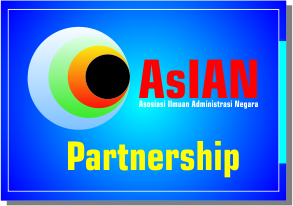REVOLUSI MENTAL MELALUI PENERAPAN KEBIJAKAN GERAKAN MAGRIB MENGAJI DI KABUPATEN LEBAK
DOI:
https://doi.org/10.31334/transparansi.v3i2.1098Keywords:
Mental revolution, magrib recitation movement policyAbstract
Maghrib Mengaji Community Movement or better known as GEMMAR Mengaji is a national program of the Ministry of Religion of the Republic of Indonesia which is launched in every Province and Regency / City in Indonesia(Revelation, 2018). Indonesian Muslims constitute the majority community where almost all Indonesian citizens are predominantly Muslim. According to the 2010 statistical data, Muslims in Indonesia totaled 207,176,162 people or 87.18% followed by Christianity with a percentage of 6.96%, in the next position, namely Catholicism with a percentage of 2.91%, Hinduism 1.69%, Buddhism. 0.72, and Khong hu chu 0.05%. Today people prefer to spend their time watching television than reading the Koran or other positive activities(Kristiawan, 2016). This also happens in Lebak Regency as an area which also has the characteristics of the majority being Islam. So that with the implementation of the perda, the magrib reciting movement can bring about mental changes in thinking, especially among children and adolescents for a better life. The method used in this research is a qualitative method. The results in this study indicate that the implementation of the maghrib recitation regional regulation is quite good if viewed from the communication dimension which shows the socialization carried out by the implementing agency, resources in the form of incentive support for reciting teachers, adequate facilities in the implementation of magrib recitation, and the number of teachers. sufficient recitation.References
Agustino, Leo, 2014. Dasar-Dasar Kebijakan Publik, Bandung: Alfabeta.
Abdul Wahab, Solichin. 2002. Analisis Kebijaksanaan dari formulasi ke Implementasi Kebijaksanaan Negara. Jakarta: Bumi Aksara.
Ahmadi, Rulam. 2016. Metodologi Penelitian Kualitatif. Yogyakarta: Ar-RUZZ MEDIA
A G Subarsono, 2015. Analisis Kebijakan Publik Konsep, Teori dan Aplikasi. Yogyakarta: Pustaka Pelajar.
Dwiyanto, Indiahono. 2009. Kebijakan Publik Berbasis Dynamic Policy Analysis. Yogyakarta: Gava Media.
Herman, P. N. (2018). Evaluasi Pelaksanaan Kebijakan Peraturan Daerah Indragiri Hulu Nomor 3 Tahun 2014 Tentang Perlindungan Anak (Studi Kasus Maghrib Mengaji Kebijakan Kota Layak Anak Di Desa Air Molek Ii Kecamatan Pasir Penyu Kabupaten Indragiri Hulu). Publika, 4(2), 299-318.
Kurniawan, Luthfi J dan Mustafa Lutfi. 2012. Perihal Negara, Hukum dan Kebijakan Publik, Setara Press, Malang.
Muchlis Hamidi, 2017. Kebijakan Publik: Proses, analisis partisipasi Copyright@Muchlis Hamidi.
Muhammad Ridha Suaib. (2015). Pengantar Kebijakan Publik. Yogyakarta: Calpulis.
Moleong, J.Lexy, 2006. Metodologi Penelitian Kualitatif, Bandung: PT. Remaja Rosdakarya.
Sahya Anggara, 2014. Kebijakan public, CV Pustaka Setia:2018.
Sugiyono, 2012. Memahami Penelitian Kualitatif, Bandung : CV. Alfabeta.
Sugiyono. 2009. Metode Penelitian Kuantitatif,Kualitatif dan R&D. Bandung: Alfabeta
Sumber Jurnal:
Kartika, R., & Nurman, N. (2018). Pelaksanaan Gerakan Masyarakat Magrib Mengaji Di Nagari Lubuk Basung Kabupaten Agam. Journal of Civic Education, 1(2), 141–148. https://doi.org/10.24036/jce.v1i2.185
Kristiawan, M. (2016). Telaah Revolusi Mental Dan Pendidikan Karakter Dalam Pembentukkan Sumber Daya Manusia Indonesia Yang Pandai Dan Berakhlak Mulia. Ta’dib, 18(1), 13. https://doi.org/10.31958/jt.v18i1.274
Sugestian, G., Syafei, M., & Fakhruddin, A. (2018). Pembinaan Keagamaan Masyarakat Kota Bandung Melalui Program Magrib Mengaji: Studi Kasus Pada Masjid Al-Fithroh Kecamatan Bandung Kulon. TARBAWY : Indonesian Journal of Islamic Education, 4(2), 191. https://doi.org/10.17509/t.v4i2.8563
Wahyu, F. (2018). PENGEMBANGAN MASYARAKAT ISLAM: PROGRAM MAGRIB MENGAJI KECAMATAN KOTO TANGAH PADANG, SUMATERA BARAT Fadjri Wahyu. Jurnal Al_Fuad, 1(2), 115–125.
Sumber Peraturan:
Peraturan Daerah Nomor 17 Tahun 2006 Tentang Penyelenggaraam Ketertiban, Kebersihan, dan Keindahan.
Downloads
Additional Files
Published
Issue
Section
License

This work is licensed under a Creative Commons Attribution-ShareAlike 4.0 International License
Please find the rights and licenses in Transparansi : Jurnal Ilmiah Ilmu Administrasi By submitting the article/manuscript of the article, the author(s) agree with this policy. No specific document sign-off is required.
- License
The commercial use of the article will be governed by the Creative Commons Attribution license as currently displayed on Creative Commons Attribution-ShareAlike 4.0 International License.
2. Author(s)' Warranties
The author warrants that the article is original, written by stated author(s), has not been published before, contains no unlawful statements, does not infringe the rights of others, is subject to copyright that is vested exclusively in the author and free of any third party rights, and that any necessary written permissions to quote from other sources have been obtained by the author(s).
3. User Rights
Transparansi : Jurnal Ilmiah Ilmu Administrasi spirit is to disseminate articles published are as free as possible. Under the Creative Commons license, Transparansi : Jurnal Ilmiah Ilmu Administrasi permits users to copy, distribute, display, and perform the work for non-commercial purposes only. Users will also need to attribute authors and Transparansi : Jurnal Ilmiah Ilmu Administrasi on distributing works in the journal and other media of publications.
4. Co-Authorship
If the article was jointly prepared by more than one author, any authors submitting the manuscript warrants that he/she has been authorized by all co-authors to be agreed on this copyright and license notice (agreement) on their behalf, and agrees to inform his/her co-authors of the terms of this policy. Transparansi : Jurnal Ilmiah Ilmu Administrasi will not be held liable for anything that may arise due to the author(s) internal dispute. Transparansi : Jurnal Ilmiah Ilmu Administrasi will only communicate with the corresponding author.
5. Miscellaneous
Transparansi : Jurnal Ilmiah Ilmu Administrasi will publish the article (or have it published) in the journal if the article’s editorial process is successfully completed. Transparansi : Jurnal Ilmiah Ilmu Administrasi editors may modify the article to a style of punctuation, spelling, capitalization, referencing and usage that deems appropriate. The author acknowledges that the article may be published so that it will be publicly accessible and such access will be free of charge for the readers as mentioned in point 3.
Every accepted manuscript should be accompanied by "Copyright Transfer Agreement"prior to the article publication.











